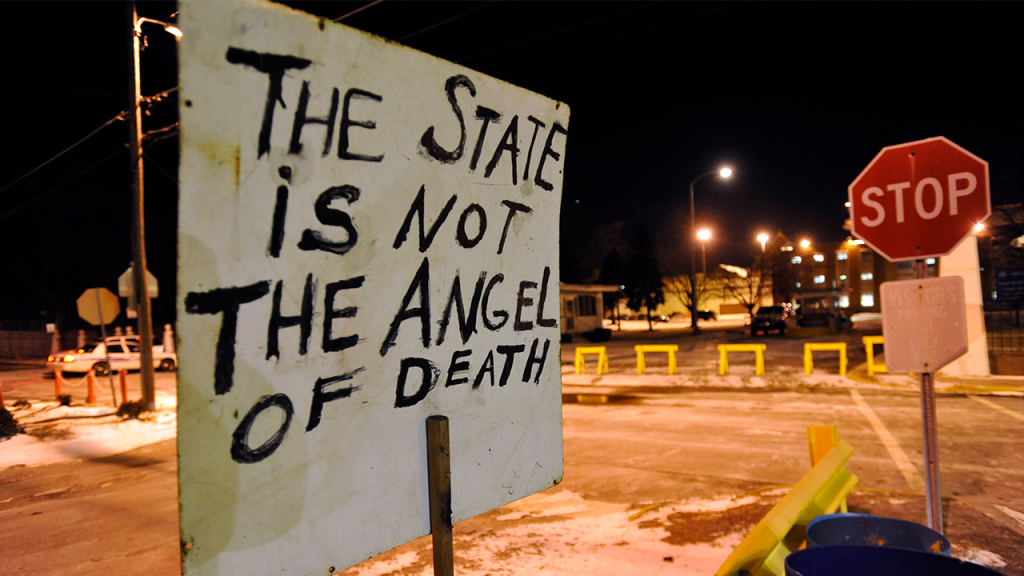Indiana Governor Eric Holcomb, a Republican, has announced that the state will carry out its first execution in 15 years, using pentobarbital, a drug acquired for lethal injections. The execution is for Joseph Corcoran, a convicted killer who murdered four people in 1997. Corcoran has exhausted his federal appeals and has been awaiting execution since 2016. Attorney General Todd Rokita has filed a motion urging the state Supreme Court to set an execution date, stating that the death penalty serves as a deterrent for potential offenders committing extreme crimes of violence.
The last execution in Indiana was in 2009, and the state has since faced difficulties in obtaining lethal injection drugs, leading to a 15-year pause in executions. The Indiana Department of Correction now has possession of pentobarbital, allowing them to resume executions. The state currently has eight people on death row. Rokita emphasized that the death penalty provides justice for victims of heinous crimes and holds perpetrators accountable. Larry Komp, Corcoran’s federal defender, plans to respond to the state’s motion and seek clarity on the state’s lethal injection protocol.
States across the country are exploring new methods of execution as obtaining the drugs needed for lethal injections becomes increasingly challenging. Earlier this year, Alabama became the first state to use nitrogen gas for an execution, sparking criticism over its perceived inhumanity and potential for causing suffering. The use of pentobarbital in lethal injections has been controversial, with some arguing that it causes unnecessary pain and suffering for the condemned.
Corcoran, who has been on death row since 1999, was convicted for the brutal killings of four individuals, including his brother, in July 1997. The upcoming execution marks a significant development in Indiana’s criminal justice system after years of legal battles and hurdles hindering the resumption of capital punishment. The decision to move forward with Corcoran’s execution reflects the state’s commitment to enforcing the death penalty as a form of justice and deterrence against extreme acts of violence.
The resumption of executions in Indiana signals a shift in the state’s approach to carrying out the death penalty, with officials focusing on acquiring the necessary drugs and implementing lethal injection protocols. The use of pentobarbital in executions raises moral and ethical questions about the humane treatment of condemned individuals, as well as the effectiveness of capital punishment as a deterrent. The decision to proceed with Corcoran’s execution has sparked debate and controversy, highlighting the complex and divisive nature of the death penalty in the United States.
Ultimately, the upcoming execution in Indiana brings attention to the ongoing debate surrounding capital punishment, its role in society, and the ethical considerations that come with enforcing the death penalty. As states grapple with challenges in carrying out executions and securing lethal injection drugs, the resumption of capital punishment in Indiana underscores the state’s determination to uphold the law and seek justice for victims of violent crimes. The decision to execute Joseph Corcoran sheds light on the complex issues surrounding the death penalty, prompting discussions about its morality, effectiveness, and impact on individuals and society as a whole.


